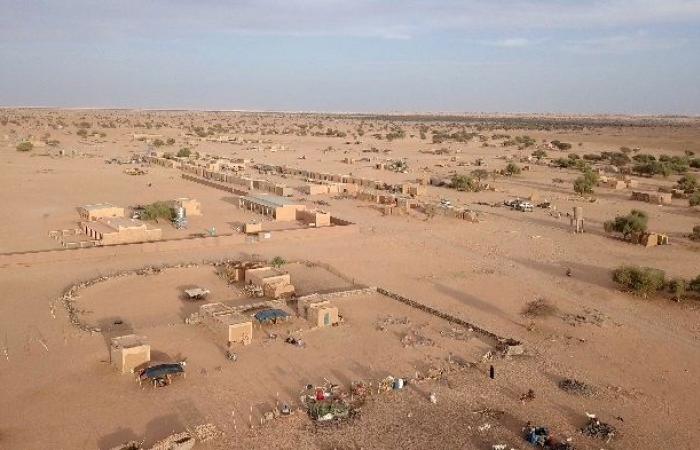
Malian authorities must conduct an effective and transparent investigation into the deaths of at least eight civilians following drone strikes that targeted a market on a busy day in Inadiafatane last month. This attack must be investigated as a war crime because it left civilians dead and injured and targeted civilian objects, Amnesty International said today.
According to information collected by Amnesty International from several witnesses to the drone strikes carried out on October 21 in Inadiafatane, in the Timbuktu region, in northern Mali, six children were among the eight civilians killed, while around fifteen people were injured, several seriously.
Authorities must urgently investigate the decision-making and execution of drone strikes that caused civilian casualties.
Samira Daoud, Amnesty International Regional Director for West and Central Africa
“The principle of distinction is essential to guide the selection of military objectives. Drone strikes should clearly distinguish between civilians and military personnel or combatants belonging to armed groups, avoiding targeting the civilian population or buildings not used for military purposes. The precautionary principle in attacks requires that military operations be carried out with the constant concern to protect civilians and civilian infrastructure,” said Samira Daoud, Amnesty International Regional Director for West Africa and Africa. Central Africa.
Children and babies among the victims
Attaye*, a witness to the strikes, told Amnesty International: “I was in my yard around noon when the first explosions rang out. There was a second strike 15 minutes later, then a third. The first strike targeted five motorcycles which were located under a metal shed in the market. It killed several people and the shrapnel injured several others.”
“The second strike targeted a vehicle belonging to a trader who came to the market. The third strike also destroyed a vehicle. These strikes took place in the middle of the market and the victims were mainly people who were buying, selling or wandering around. A four-month-old baby and a six-year-old girl were killed. Several injured people transported to Timbuktu died en route or after their arrival. Eight people were killed and around fifteen were injured. But two other people reportedly fled the market after the drone strikes and died of their injuries in the bush.”
The nine-year-old girl and the baby died while being transported to Timbuktu hospital on the night of October 21-22. The woman died two days later in Timbuktu hospital.
Abass*, witness to the strikes
Abass*, who lost four members of his family in the strikes, told Amnesty International: “The drone had been flying over the market since 9 a.m. Around 10 a.m. we didn't hear him anymore, but around 11 a.m. he came back. Four people died, including two children, an infant and a man around 50 years old. Another child, aged six months, died from his injuries two hours later. A large number of people were also injured.”
He said five of the seriously injured were rushed to Timbuktu hospital aboard a pick-up, including a woman and a nine-year-old girl suffering from serious abdominal injuries, a one-year-old baby hit by shrapnel, and two young men, one of whom suffered a fracture.
He added: “The nine-year-old girl and the baby died while being transported to Timbuktu hospital on the night of October 21-22. The woman died two days later in Timbuktu hospital. The two young men are still hospitalized in Timbuktu. Less serious cases are treated at the Inadiafatane health center.”
Redouane*, another resident of Inadiafatane, told Amnesty International: “Many injured people fled into the bush. Some of them did not want to be treated at the health center. Nomads are very suspicious of state authority and tend to take refuge in the bush when they feel in danger. We count on God's help. No one came to help us. »
“Malian authorities must urgently investigate the decision-making process and execution of drone strikes that caused civilian casualties. They must also demonstrate greater transparency regarding their rules of engagement regarding the use of drones,” said Samira Daoud.
Context
These drone strikes took place following several similar attacks that caused civilian casualties in 2024. On March 17, a strike in Amasrakadh, in the Gao region, killed 13 civilians, including seven children, according to testimonies collected by Amnesty International. Another strike, on March 23 in Douna, killed 14 civilians, including 11 children.
*Names have been changed to protect identities.





